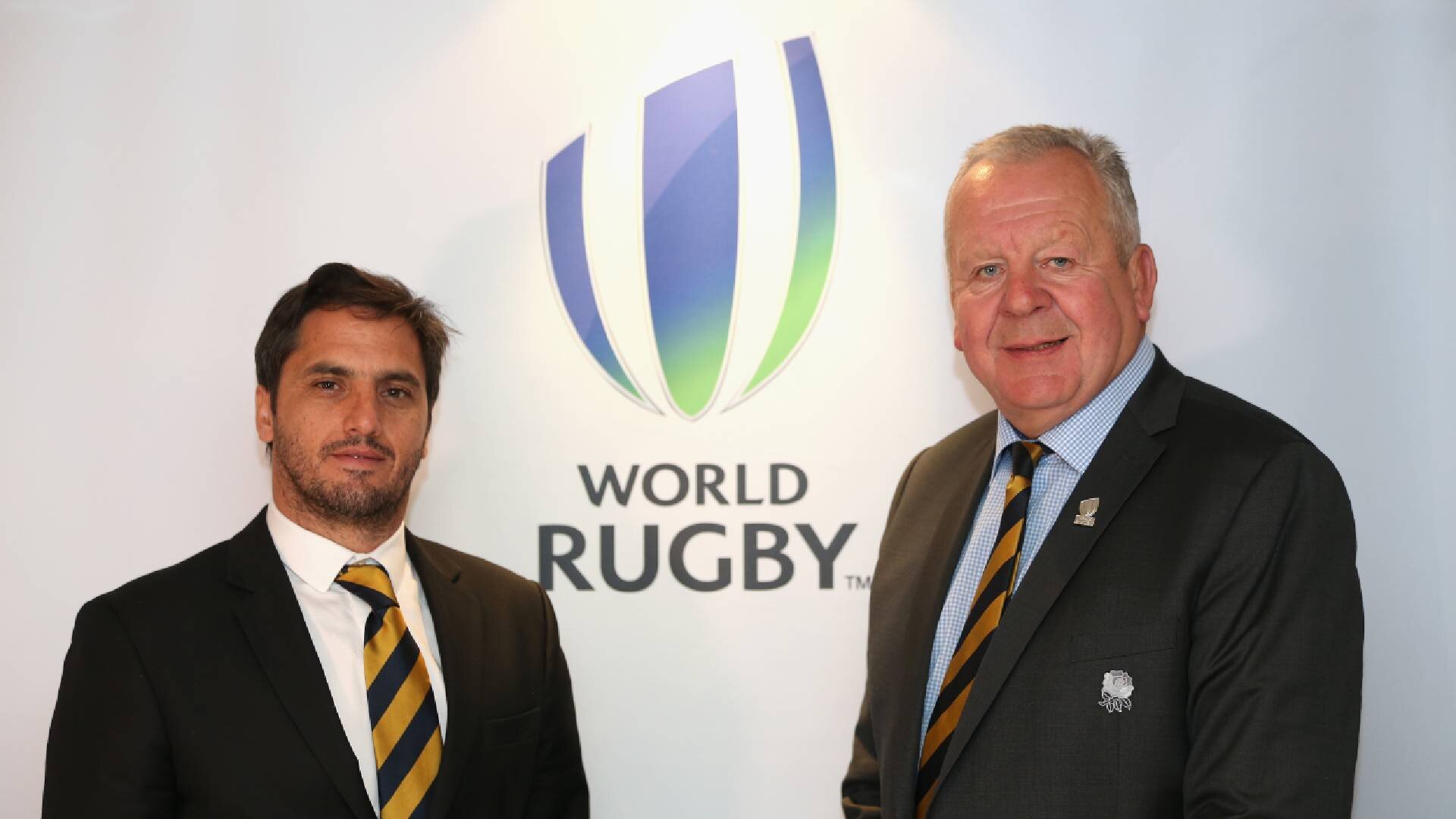Stunning late twist in World Rugby election as vote comes down to one man

The fate of the next World Rugby chairman is believed to sit in Fijian Prime Minster Frank Bainimarama’s hands.
With the Six Nations and Sanzaar countries locked in a classic north versus south standoff over the future direction of the global game, the Herald has learned one vote from the small nation in the south pacific could swing the World Rugby election Bill Beaumont or Agustin Pichot’s way.
Sunday’s vote, via email, is understood to be that close.
Fiji’s influence comes into sharp view after being forced to withdraw their nomination, Francis Kean, from World Rugby’s all-powerful executive committee after his manslaughter conviction, allegations of homophobia while he was head of Fiji’s prison service, among other frightening claims, were laid bare in the Sunday Times and by Pacific rugby advocate Dan Leo recent days.
The scandal exposed Kean’s position on the World Rugby council since May, 2019, as an embarrassment for the sport which now threatens to derail Beaumont’s chairman campaign.
In confirming Kean’s withdrawal, World Rugby said: “While it is important to stress that any allegations must be validated, following dialogue with World Rugby, the Fiji Rugby Union recognises the seriousness of the allegations made and the need for them to be fully investigated, and that it is in the best interests of the sport that Mr Kean steps down from the Council and his Executive Committee candidature be withdrawn.”
Kean, Bainimarama’s brother-in-law, immediately stepping down following immense public scrutiny carries major ramifications in Fiji’s vote for the World Rugby chairman.
Kean’s place on the World Rugby council – a wider governing group with minimal influence – will be taken by Fiji Rugby Union chief executive, John O’Connor.
Pivotally, Kean cannot, however, be replaced on the World Rugby executive committee, effectively the game’s global board, as the deadline for nominations has ceased.
Kean’s withdrawal allows the seven remaining nominations to the executive committee to proceed without the need for a vote, which strips Fiji of the chance to exert any genuine influence on the future of the game.
Fiji seconded Beaumont’s nomination for chairman, but Kean’s withdrawal dramatically alters the context of their vote.
A vote for Beaumont or Pichot could be Fiji’s one chance to play their one card in the next four-year cycle.
https://www.instagram.com/p/B_QkdXRAgIQ/?utm_source=ig_web_copy_link
Kean’s nomination for the executive committee was seconded by French rugby president, Bernard Laporte, who is running alongside Beaumont for the vice-chairman role.
But with Kean now out of the picture and the executive committee position gone with him, Fiji have no obligation and arguably little to gain by supporting Beaumont’s reinstatement.
This is where Fiji Prime Minster Bainimarama, also the Fiji Rugby Union president, comes into play.
Bainimarama first assumed charge in Fiji via military coup in 2006, which led to New Zealand and Australian governments sanctioning him and other senior officials.
Fourteen years on, Bainimarama has since won two elections and normalised international relations.
With the vote for World Rugby chairman poised on a knife-edge, Bainimarama now faces a monumental decision that could shape the future of the global game.
His choice is either to stick with Beaumont and the established northern rugby powers who, to this point, have succeeded in protectionism and staunch resistance to change, or Pichot’s vision for a global game which would elevate Fiji into tier-one competitions.
Developments in the controversy surrounding the Fijian rugby chairman https://t.co/Vu6VHD6alr
— RugbyPass (@RugbyPass) April 21, 2020
The Herald understands former Argentine captain Pichot has garnered enough support from other previously undecided tier-two nations to recoup much of Sanzaar’s six-vote shortfall against the Six Nations unions.
Ultimately, that leaves Bainimarama in a position of power, and there is hope among Sanzaar he will perform a late U-turn to support their vision for change.
Siding with the north could consign Fiji to largely fighting for familiar crumbs over the four years after requests for a fair slice of revenue from tests at money-printing northern venues were repeatedly rejected.
In Pichot, however, Fiji’s path towards a fully-integrated place in South Hemisphere rugby, and with it a more equitable future, may finally crystallise.
Samoan Prime Minister, Tuila’epa Sa’ilele Malielegaoi who, like Bainimarama, runs the country’s rugby union, is believed to have promised Beaumont his vote at last year’s World Cup.
In exchange, Beaumont has pledged to review eligibility changes that would allow high profile players with Pacific Island heritage to switch allegiance back to those nations after being captured by the likes of the All Blacks and England.
The question now is which way Bainimarama will cast Fiji’s decisive vote.













































